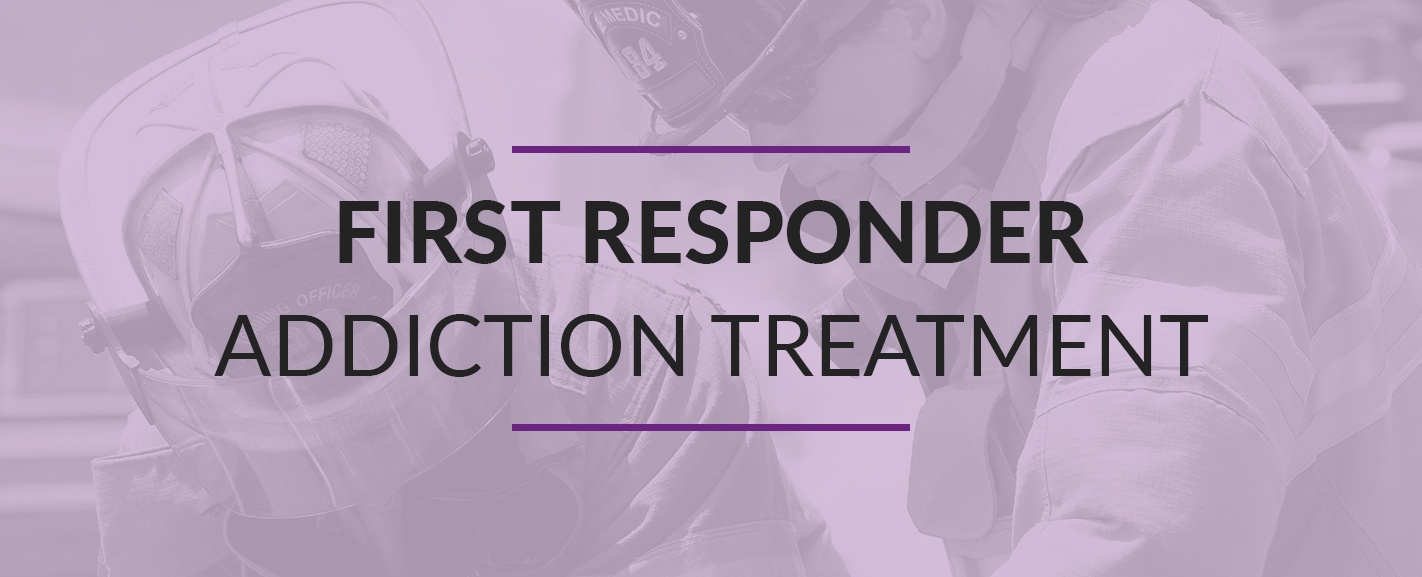

First responders answer the call to help others throughout their communities. But when faced with addiction, first responders need help of their own. Drug addiction and alcohol abuse are complex disorders. When paired with the daily challenges of being a first responder, addiction can become a difficult hurdle. With the right guidance, recovery and sobriety are within reach.
At Diamond House Detox, we understand the stressors and mental illnesses first responders face. Learn more about first responder addiction treatment and what we at Diamond House Detox can do to help in Sacramento.
First responders are volunteers and professionals who provide help in various emergencies. Firefighters, paramedics, police officers, emergency dispatchers and other individuals work in first responder fields and encounter plenty of mental health impacts in their day-to-day lives. From mental health struggles to social and environmental influences, first responders may experience the following.
Workplace stress happens in any line of work, and first responders are no exception. Stress in the office and out in the field can contribute to mental health issues and addiction. People may begin using drugs or alcohol to relieve stress, developing an addiction.



Specific emergencies and instances on the job may lead to trauma for first responders. Trauma creates an increased risk of substance abuse and alcohol addiction.
A demanding work schedule means many first responders have little or no time to debrief between traumatic events. They go from one job to the next without the opportunity to discuss or heal from work-related trauma.
People can develop PTSD even if they do not experience a traumatic event themselves. If they witness traumatic situations, as first responders often do, it can result in PTSD. People with PTSD can be up to 14 times more likely to have a substance abuse disorder.
Contact UsWhile genetics are a factor in anxiety and depression, environmental issues are an influence, as well. First responders face work environments and trauma that could cause anxiety or depression. Mental health issues and addiction are often simultaneous, with one leading to another or one happening as a result of the other.
First responders may experience irregular sleep patterns due to job hours. Sleep disruptions due to stress, anxiety or depression are also common. People may then self-medicate in an attempt to solve sleep problems, which can lead to addiction.
First responders answering natural disasters and other emergencies put their bodies on the line. A physical injury could be a consequence of the job or volunteer work. If an injury happens, especially along with other mental health concerns, it could lead to substance abuse as a method of relieving pain.
First responders can witness loss firsthand. That could be the loss of civilians’ lives in the field or the death of fellow first responders. Those experiences lead to grief, which could cause substance abuse.
Along with these mental health struggles, the social culture around a first responder may impact addiction. Often, a culture that normalizes alcohol use to de-stress surrounds first responders. They may also be in an environment that centers on drinking alcohol while socializing. These issues can contribute toward alcohol addiction for first responders.



First responders face complex work-related issues and mental illness that can be barriers to recovery. Paired with an individual’s desire and motivation to recover, these addiction treatments for first responders can help.
Residential treatment provides a stabilization program for clients. It allows facilities to track post-acute withdrawal syndrome, or PAWS. This phenomenon includes symptoms such as anxiety, depression and trouble sleeping — problems first responders may already face.
Clients in residential treatment get continuous support from therapists and counselors, which can reduce the intensity of PAWS. Residential treatment also lets professionals address underlying mental health issues first responders face. In general, residential treatment can help clients achieve healing and sobriety. It can also give them the tools they need to maintain that sobriety long-term.
With residential treatment, clients have a place away from stressors and triggers of daily life. First responders will step away from work-related stressors, developing the skills to cope with them when they return.
Contact UsDual-diagnosis treatment addresses co-occurring mental health conditions, which first responders often experience. This approach recognizes that counselors can and should treat mental illnesses and addiction at the same time.
Dual-diagnosis care also accepts the connection between drug addiction or alcohol abuse and mental illness. That can give clients more individualized care. Dual-diagnosis treatment can address:
For a first responder, therapy provides a space to explore mental illness, work-related stressors and other triggers. Therapy comes in many forms because every client has different needs. You or the first responder in your life could benefit from:
With the above methods, Diamond House Detox uses a holistic, personalized approach to treatment. Our goal is to improve our clients’ quality of life. We want to allow people facing addiction to rebuild their lives, recover and reintegrate into their communities.
We know that for first responders, a sense of belonging is essential. First responders experience the community of friends and family in their chosen career and the neighbors they serve. Reintegration will be crucial for first responders on their addiction recovery journeys. But we also understand every individual has unique needs.
At Diamond House Detox, one of our approaches to recovery is incidental medical services (IMS). This service helps us meet our goal of keeping clients safe and comfortable as they recover from addiction. With IMS, we have on-site medical providers. These in-house professionals adjust medications and provide medically assisted detox as needed.
In providing these supplemental services on-site, we can make your or a loved one’s stay more convenient. We provide recovery and treatment services, get medical histories and monitor a client’s health status.
With IMS and other approaches at Diamond House Detox, we can treat substance addictions like:



Detox is an intense process for anyone, including a first responder. At Diamond House Detox, we understand how crucial it is for clients to reduce everyday stressors as they recover. For first responders, in particular, events, activities, places and people could be problematic. We can work to provide first responders the tools to address and better handle both internal and external triggers.
Our residential treatment services create a space away from stressors for clients to detox. At Diamond House Detox, we provide our clients with:
With our accommodations and an on-site chef, clients at Diamond House Detox will be able to nourish their body, mind and spirit. Attention to small detail and client care make Diamond House Detox an ideal choice for you or a loved one.
Alternatively, Diamond House also specializes in intensive outpatient treatment options for those looking to maintain a sense of normalcy in their daily lives while also receiving life-changing treatment.
Read testimonials to learn more about why choosing Diamond House Detox could be right for you or a first responder you care about.
Contact UsIf you or a loved one are a first responder facing addiction, seek residential treatment at Diamond House Detox in Sacramento. We create a personal experience to help you or a loved one regain control. First responders are essential to their communities. They should get the help they deserve to detox, recover and maintain sobriety.
Contact Diamond House Detox and help us create a personalized program for you or a first responder in your life.
Contact Us